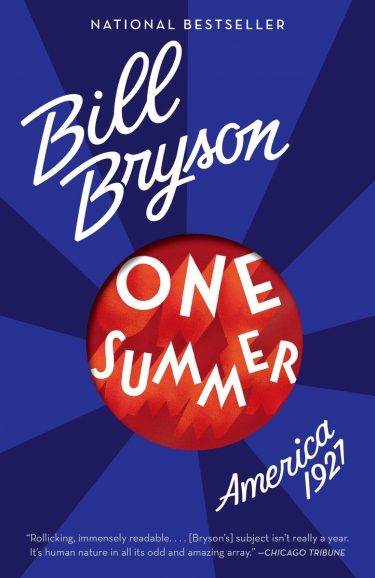Book review: One Summer is the fascinating story of how America became a super power
 Most historians agree that America became the wold’s superpower in the early 1900s, either after the building the Panama Canal or certainly for their help in winning World War I.
Most historians agree that America became the wold’s superpower in the early 1900s, either after the building the Panama Canal or certainly for their help in winning World War I.
Author Bill Bryson, however, convincingly argues that the county truly congealed that status in the summer of 1927, when Charles Lindberg became a global superstar after becoming the first person to fly across the Atlantic; “talking pictures” began exporting American thoughts, attitudes, and culture en masse; installment plans made modern consumerism possible; television was invented, and Babe Ruth became the first athletic superstar. Amazingly, a lot more happened that summer, too, which you’ll need to read to find out for yourself.
With one or two exceptions later in the book—where Bryson sorta goes off on a tangent about seemingly unconnected things that happened that summer (such as what book publishers did that summer)—I found the history to be fascinating and often gripping. Either way, “It was one hell of a summer,” Bryson writes.
Here’s my favorite passage: “It is a little hard to imagine now, but Americans in the 1920s had grown up in a world in which most of the most important things happened in Europe. Now suddenly America was dominant in nearly every field—in popular culture, finance and banking, military might, invention and technology. The center of gravity for the planet was moving to the other side of the world, and Charles Lindbergh’s flight somehow became the culminating expression of that.”
★★★★☆
